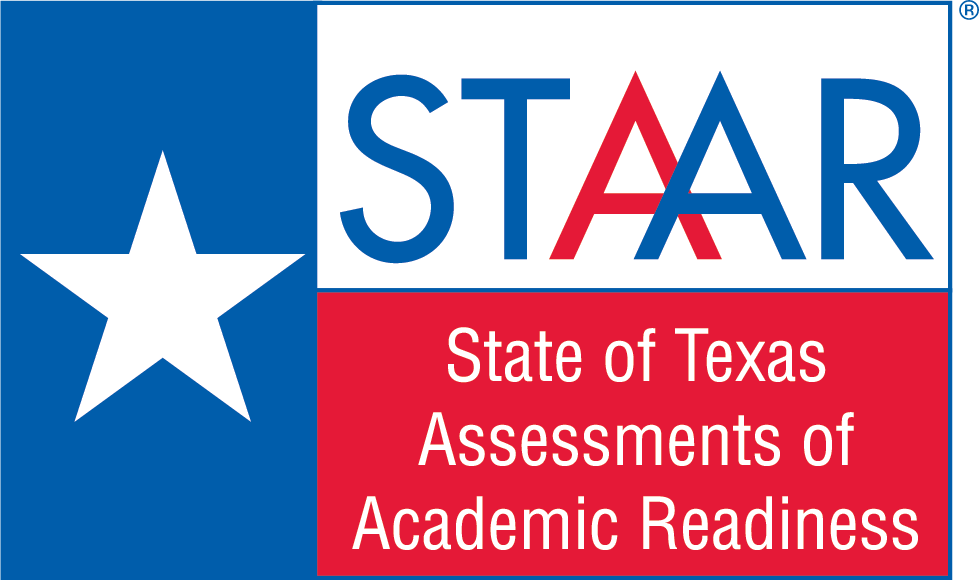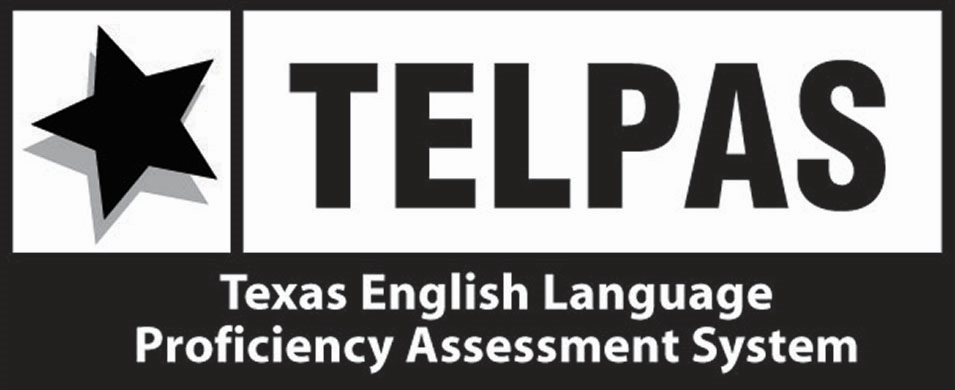
The NISD Testing Office is responsible for ensuring the fidelity of the following test administrations and delivering valid, reliable data to inform instruction that promotes student growth:
- CogAT
- Credit by Exam
- STAAR Interim Assessments
- STAAR 3-8, STAAR EOC & STAAR Alternate 2
- TELPAS & TELPAS Alternate
- PSAT/NMSQT & SAT
- TSIA2
- Other National Assessments
Northside ISD implements a Balanced Assessment System, using a variety of assessments to provide evidence of student learning and growth to inform instructional decision making.
The Northside Testing Office facilitates group assessment activities for large-scale administrations including but not limited to state mandated assessments and delivers valid, reliable data to inform instruction that promotes student growth. NISD has long felt that local-option testing programs are vital to provide information that is crucial to further excellence in teaching.
We invite you to contact us at 210-397-8726 with any questions you may have regarding the assessments listed below.

STAAR/STAAR ALT 2
The State of Texas Assessments of Academic Readiness (STAAR) program, which was implemented in spring 2012, includes annual assessments for
- reading and mathematics, grades 3–8
- science at grades 5 and 8
- social studies at grade 8
- end-of-course (EOC) assessments for English I, English II, Algebra I, Biology and U.S history.
STAAR Alternate 2 assesses students in grades 3–8 and high school who have significant cognitive disabilities and are receiving special education services.
Log in to the Texas Education Agency Family Portal at https://www.texasassessment.gov/

TELPAS/TELPAS ALT
- Texas English Language Proficiency Assessment System
- Is designed to assess the progress that limited Emergent Bilingual (EB) students make in learning the English language.
- Is taken in kindergarten through grade 12 in four language domains: listening, speaking, reading, and writing.
- Assesses students in alignment with the Texas English Language Proficiency Standards (ELPS), which are part of the Texas Essential Knowledge and Skills (TEKS). The ELPS proficiency level descriptors (PLDs) present the major characteristics of each language proficiency level in each language domain. The PLDs define how well ELLs at the four proficiency levels are able to understand and use English in grade-level academic settings.
Student performance is reported in terms of four English language proficiency levels: beginning, intermediate, advanced, and advanced high.
All limited English proficient students as identified by the bilingual student placement center.
An online reading test based on multiple choice questions used to determine students English reading levels.
- Teachers are trained to use proficiency level descriptors to determine the English language proficiency levels of students based on classroom observations and written student work.
- Teachers are required to go online and pass calibration tests that assess the teacher’s knowledge of rating various student TELPAS writing, listening and speaking samples. A teacher must successfully calibrate every year in order to qualify to assess students TELPAS ratings. After passing the TELPAS calibration test the teacher is also required to go online and pass a refresher TELPAS training course where the teacher rates various writing samples.
TELPAS results are used to meet state and federal reporting and accountability requirements teachers are trained to use proficiency level descriptors (assessment guidelines) to determine the English language proficiency levels of students based on classroom observations and written student work.
- Beginning (Little or no English ability)
- Intermediate (Limited ability, simple language structures, high-frequency vocabulary, routine contexts)
- Advanced (Grade appropriate, with second language acquisition support)
- Advanced High (Grade appropriate, with minimal second language acquisition support)
- To help parents monitor the progress their children make in learning English.
- To inform instructional planning and program exit decisions for individual students.
- To report performance to local school boards, school professionals, and the community.
- To evaluate programs, resources, and staffing patterns.
- To evaluate districts and campuses in a variety of state and federal accountability measures.

COGAT
COGAT 07 Information
The Cognitive Abilities Test™ (CogAT) measures general reasoning abilities in three domains: verbal, quantitative, and nonverbal. CogAT’s measurement of three different content domains ensures that educators receive a balanced view of the child. Although its primary goal is to assess students’ reasoning abilities, CogAT can also provide predicted achievement scores when administered with The Iowa Tests.
- A Parents' Guide to Ability and Student Learning
- How CogAT® Provides Insight into Student Ability and Learning

PSAT
The Preliminary SAT/National Merit Scholarship Qualifying Test (PSAT/NMSQT) is a program cosponsored by the College Board and National Merit Scholarship Corporation (NMSC). It's a standardized test that provides first hand practice for the SAT®. It also gives students a chance to enter NMSC scholarship programs and gain access to college and career planning tools.
NISD currently offers the PSAT test to all sophomores and juniors as a tool to prepare for the SAT and National Merit Scholarship program. The test is given once a year in October. For questions regarding this test, please contact your high school Counselor.
PSAT will be delivered on a digital platform. For more information about the digital PSAT go to: https://satsuite.collegeboard.org/psat-nmsqt
PSAT/NMSQT Testing Dates for 2025-2026 |
Registration for 10th & 11th grade homeschool students will open on Monday, August 18, 2025. The deadline for homeschool students to register for the October 8, 2025, PSAT administration is Wednesday, September 24, 2025. Due to College Board’s test ordering deadline and planning, no late registrations will be accepted. Click here for the 25-26 Homeschool PSAT information letter. Click here to register a homeschooled student. Registration opens August 18, 2025, and closes September 24, 2025. NISD students, register from your school’s website. |

Out of School (OOS)/Out of District (OOD)
Northside ISD does not offer Out of District testing to students enrolled in other districts or virtual academies. If your child is an Out of District student, please contact your child’s school or virtual academy to arrange testing.
Northside ISD offers STAAR EOC testing to Out of School students only who are no longer enrolled in any school, in person or virtual. Examinees who have not passed a STAAR EOC assessment and are no longer enrolled in school but have otherwise completed requirements for graduation should register for STAAR OOS testing. Registration forms will be available below.
- Out-of-School students who are no longer enrolled in any school, in person or virtual, are eligible to test.
- Register by filling out this form.
- NISD will only test on the dates posted under Important Dates on this site.
- Check-in requires a pre-registration form and valid photo identification.
- Students may begin the check-in process at 7:45 am on the date of testing.
- Forms of photo identification accepted by NISD may be a valid campus ID, driver's license, military ID, or passport. Students without a valid photo ID will not be allowed to test.
- Students must plan to arrive at the test site, check-in, and be seated prior to the start time of the test. Once a test session starts, NISD will not allow late check-in to test.
- NISD will offer one test session date (no make-up testing) that will begin at 8 am. Refer to the Important Dates below for the date of each test session.
- Students must follow Guidelines for the dress and grooming policy or will not be allowed to check in and test.
- NISD does not provide lunch for students.
- Students who have completed testing may submit the test, return materials, and leave the testing site.
- Test results will be available on the texasassessment.gov portal on or after June, 10, 2026.
Northside ISD offers STAAR EOC testing to Out-of-School students only who are no longer enrolled in any school, in person or virtual. Examinees who have not passed a STAAR EOC assessment and are no longer enrolled in school but have otherwise completed requirements for graduation should register for STAAR OOS testing. For the Spring 2026 STAAR EOC administration, OOS examinees must register online.
The Texas Assessments of Knowledge and Skills (TAKS) tests are no longer being administered. Former TAKS examinees (including former Texas Assessment of Knowledge and Skills [TAAS] and Texas Educational Assessment of Minimal Skills [TEAMS] examinees) can take the appropriate State of Texas Assessments of Academic Readiness (STAAR®) test. STAAR may be used as an alternate assessment to meet graduation testing requirements for former TAKS, TAAS, and TEAMS examinees.
The Spring 2025 STAAR EOC Out-of-School registration window is now open, the registration deadline is Friday, February 27, 2026.
The assessments will be administered as follows:
- English I - Wednesday, April 8, 2026
- English II - Thursday, April 9, 2026
- U.S. History - Thursday, April 16, 2026
- Biology - Friday, April 17, 2026
- Algebra I - Monday, April 27, 2026